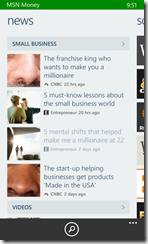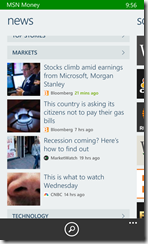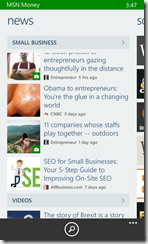It’s a new month, so I need to keep my post stats active every month – here goes nothing. This is something I’ve mulled over for some time, but never gave it much internal analysis until recently.
Restaurant kiosks are starting to proliferate. My reaction to them ranges from indifferent to disgust. The first kiosk on the scene was at Chilis. And at this place, I am indifferent to the presence of the checkout device. I use it without any issue and I’m out. Next up was Olive Garden. This one irks me. I try to pay for my meals through the waitress, and if I’m made to pay through the device, I always leave a comment that I hate using it. The most recent arrival is at McDonalds. This one really irritates me. After a few interactions with these huge devices, I gave thought to my feelings. Why do I not mind kiosks at Chilis, dislike them at Olive Garden, and hate them at McD’s?
In the Chilis/OG setup, I know that I disliked OG’s more because it cheapened the dining experience. Go ahead and laugh that I think OG is a “dining experience”. But it is a full service restaurant. So is Chilis, but the atmosphere at Chilis is definitely less formal. Go ahead and laugh that I think OG is “formal”. Whatever.
So if I don’t mind that Chilis is informal and has kiosks, then why do I have an issue at McDs? It sure isn’t more formal than Chilis. I gave it a lot of thought and this is what I came up with.
At McDs, a part of my satisfaction of the meal is the service. You can laugh and say that’s a pretty low hurdle, and you’re right. And you’d be surprised how often it isn’t met. Or maybe you wouldn’t. But when it’s good, it makes things pretty awesome. Think of it like a shitty baseball team. You want them to win. You know it’s a long shot – a really long shot. But when they put up a good fight and still lose, you can still have some pride. You know they really tried. They’re just not good. Doesn’t that sound like your typical McDs experience?
Oh wait, I had a better example that explains how I feel about this. Imagine a band playing at a concert. There’s an awesome song you want to hear because it has this really technical, difficult part in it. Even if the band messes up the part, it’s still great. You know they can do it (because they did it before, when they recorded the album), so you give them a pass. Maybe they mess it up at every concert you go to, but you still love them for trying it.
Now imagine the band determines that they just can’t play the song like they did in the studio, so they decide to cut out that section. They just don’t play it. Yay, no more mistakes. But you get no satisfaction out of seeing them try and maybe they’ll actually kick ass and get it right. That would be awesome after so many times of seeing them get so close. But, they cheated.
And that’s what McDs is doing. They’re cheating. They know they suck at the service part, so they’re cutting it out. But they don’t always suck! A lot, yes, but not always. And I want to be there when they don’t suck – that makes it awesome. But they’ve taken that potential away.
So now when I go to McDs (3 out of 4 of the locations I go to have kiosks now), sometimes I get a cheerful person introducing the device and how to use it, and sometimes I get nothing. Either way, I’m in no mood to talk to a person. That’s not what McDs wants, clearly. And that ruins my meal. It’s like buying food from a machine.
Currently, they are bringing the food to your table, but I expect that practice will probably stop and you’ll just get your number called and you have to pick it up. Then they will probably just wall off the kitchen and serve you through a small window. Maybe you won’t even see a person back there anymore. Maybe there won’t be people there anymore. Time will tell.

















































